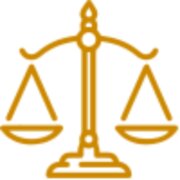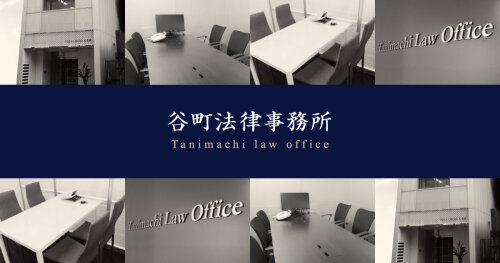Best Car Accident Lawyers in Osaka
Share your needs with us, get contacted by law firms.
Free. Takes 2 min.
List of the best lawyers in Osaka, Japan
About Car Accident Law in Osaka, Japan
Car accidents in Osaka, Japan are governed by a combination of national traffic regulations, local ordinances, and civil liability laws. Drivers and pedestrians are both expected to exercise caution to prevent harm. When accidents occur, the process of determining fault, securing compensation for injuries or damages, and dealing with insurance companies can become complex, especially for non-native residents. This makes understanding the legal landscape essential for anyone involved in a car accident in Osaka.
Why You May Need a Lawyer
Legal support can be critical after a car accident for various reasons. Many people seek a lawyer's advice when there are disputes about who was at fault, the insurance company denies or reduces a claim, the compensation offered does not cover your losses, or you face severe injuries or long-term disability. Language barriers and unfamiliarity with local procedures also prompt many foreigners in Osaka to consult legal professionals. Lawyers help protect your interests, ensure accurate filing of documents, and guide you through negotiations or, if necessary, court proceedings.
Local Laws Overview
Several aspects of Japanese law are especially relevant for car accidents in Osaka:
- Japan operates on a compulsory vehicle insurance system known as CTP (Compulsory Traffic Accident Liability Insurance). All vehicles must be insured, but the minimum coverage is often insufficient for serious accidents.
- The legal standard emphasizes fault and negligence. Partial responsibility (comparative negligence) may reduce compensation if both parties contributed to the accident.
- Victims are generally required to report the accident to police if there are injuries or significant property damage.
- Damages usually cover medical expenses, repair costs, lost income, and certain non-economic impacts such as pain and suffering.
- Settlement negotiations are common but can be lengthy. If a settlement cannot be reached, court or mediation may be required.
- If the at-fault driver flees the scene or is uninsured, government compensation programs may apply.
Frequently Asked Questions
What should I do immediately after a car accident in Osaka?
Check for injuries and move to safety if possible. Call the police and an ambulance if necessary. Exchange contact and insurance details with other parties involved, and gather evidence through photos and witness information.
Is it necessary to report every accident to the police?
Yes, under Japanese law you must report accidents that involve injuries or considerable property damage to the police. Filing a report is also crucial for insurance claims.
How is fault determined in car accidents?
Fault is assessed based on police investigations and evidence provided by the involved parties and witnesses. Insurance companies often reference established accident scenarios to assign percentages of fault.
What compensation can I claim after a car accident?
Typical compensation includes medical bills, car repair or replacement, lost wages, and pain and suffering. The exact amount depends on the case details and the degree of fault involved.
What if the driver who caused the accident is uninsured or flees the scene?
Victims in such cases may receive support through the Japanese Government's Motor Vehicle Accident Compensation system. A lawyer can assist in filing these claims.
Can foreigners claim compensation after an accident?
Yes. Foreign residents and visitors have the same rights to claim compensation as Japanese nationals. A lawyer can help with language and procedural barriers.
How long do I have to file a claim?
Japanese law generally allows three years from the date of the accident to file a claim for personal injury, though different rules may apply in specific circumstances.
Do I need a lawyer for insurance negotiations?
It is not mandatory but highly recommended, especially if injuries are severe, liability is disputed, or you are unfamiliar with Japanese law or language. A lawyer ensures your interests are protected.
What should I bring when meeting a lawyer?
Bring all documentation related to the accident such as police reports, medical records, photographs, witness contact information, and correspondence with insurance companies.
Can car accident cases go to court in Osaka?
Yes. If parties cannot reach a settlement, the case may proceed to civil court or, alternatively, mediation services may be utilized. Legal representation is especially important in court proceedings.
Additional Resources
Several organizations and governmental bodies in Osaka can assist car accident victims:
- Osaka Prefectural Police: For accident reporting and documentation
- Japan Legal Support Center (Houterasu): For legal consultations and referrals to qualified lawyers
- Japanese Bar Association: To find experienced car accident lawyers
- Local Ward Offices: For assistance with administrative procedures and language support services
- Motor Vehicle Accident Compensation System: For information about government-sponsored compensation
Next Steps
If you are involved in a car accident in Osaka and require legal assistance, consider taking the following steps:
- Gather all available evidence and documentation from the accident.
- Report the accident to the police if you have not already done so.
- Contact your insurance company and inform them about the accident.
- Seek medical attention if you are injured, even if symptoms appear minor.
- Consult a qualified car accident lawyer in Osaka, especially if you face challenges receiving fair compensation, determining fault, or are dealing with complex insurance issues.
- Document all communications and keep copies of all paperwork for your records.
Taking prompt and informed action after a car accident will help protect your rights and improve your chances of securing fair compensation. If in doubt, contacting a legal professional can provide clarity and peace of mind throughout the process.
Lawzana helps you find the best lawyers and law firms in Osaka through a curated and pre-screened list of qualified legal professionals. Our platform offers rankings and detailed profiles of attorneys and law firms, allowing you to compare based on practice areas, including Car Accident, experience, and client feedback.
Each profile includes a description of the firm's areas of practice, client reviews, team members and partners, year of establishment, spoken languages, office locations, contact information, social media presence, and any published articles or resources. Most firms on our platform speak English and are experienced in both local and international legal matters.
Get a quote from top-rated law firms in Osaka, Japan — quickly, securely, and without unnecessary hassle.
Disclaimer:
The information provided on this page is for general informational purposes only and does not constitute legal advice. While we strive to ensure the accuracy and relevance of the content, legal information may change over time, and interpretations of the law can vary. You should always consult with a qualified legal professional for advice specific to your situation.
We disclaim all liability for actions taken or not taken based on the content of this page. If you believe any information is incorrect or outdated, please contact us, and we will review and update it where appropriate.









